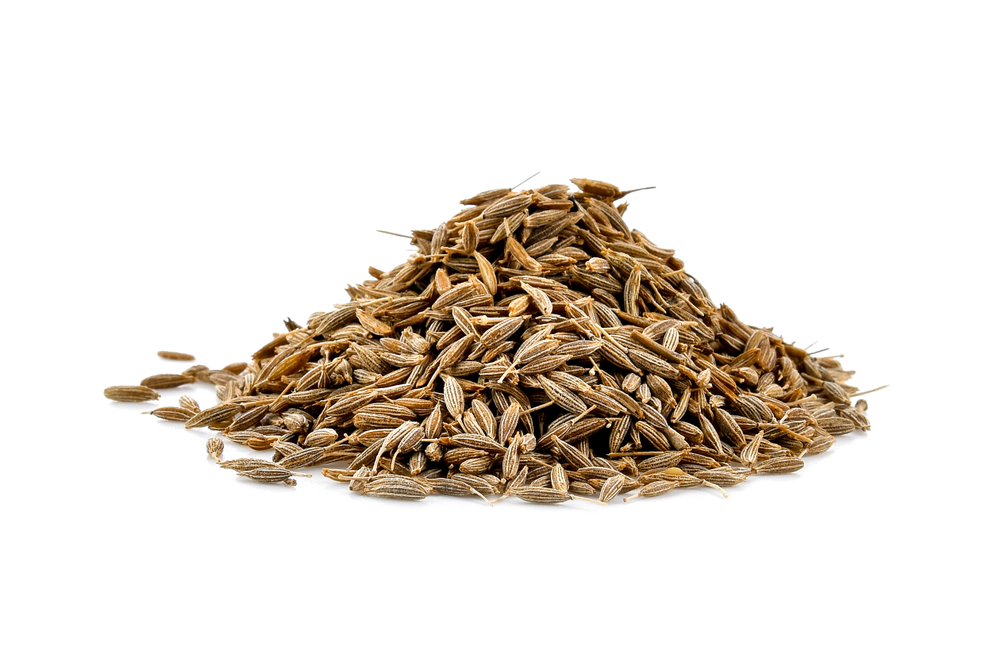Caraway Seeds: Cultivation and Usage in Egypt
Caraway seeds, scientifically known as Carum carvi, have a rich history of cultivation and usage in various cuisines and medicinal practices around the world. In Egypt, caraway holds a significant cultural and culinary importance, with its cultivation dating back centuries. This essay explores the cultivation practices of caraway seeds in Egypt, its historical and cultural significance, as well as its diverse culinary and medicinal applications.

Cultivation of Caraway Seeds in Egypt:
Egypt boasts a favorable climate and soil conditions for the cultivation of caraway seeds. The Nile Delta and Nile Valley regions, with their nutrient-rich soil and moderate temperatures, provide ideal conditions for growing this aromatic herb. Caraway plants thrive in well-drained soils with ample sunlight, making them well-suited for cultivation in Egypt’s agricultural regions.
The cultivation process typically begins with the preparation of the soil, followed by sowing the caraway seeds during the appropriate season, usually in the autumn or spring months. Farmers employ traditional farming methods alongside modern agricultural techniques to ensure optimal growth and yield. Regular irrigation and proper pest management are essential to safeguard the crop against common agricultural threats.
Throughout the growth cycle, diligent care and attention are necessary to nurture healthy caraway plants. As the plants mature, they produce umbrella-shaped clusters of small white flowers, which eventually give way to the formation of the prized caraway seeds. Harvesting usually occurs when the seeds have fully ripened and developed their characteristic aroma and flavor
Historical and Cultural Significance:
The use of caraway seeds in Egypt traces back to ancient times, where they held both culinary and medicinal significance. Egyptians valued caraway for its distinct flavor profile, which added depth and aroma to a wide array of dishes. Additionally, caraway seeds were believed to possess medicinal properties, often used to alleviate digestive ailments and promote overall well-being.
Caraway’s cultural importance in Egypt is evident in its incorporation into traditional recipes and culinary practices. From savory dishes like koshari, a popular Egyptian street food, to sweet treats like basbousa, caraway adds a unique flavor dimension that is beloved by many. Furthermore, caraway’s aromatic presence extends beyond the kitchen, with its seeds used in herbal teas and aromatic blends favored for their soothing properties.
Culinary and Medicinal Applications:
In Egyptian cuisine, caraway seeds are a staple ingredient in various dishes, imparting a warm, slightly nutty flavor and aroma. They are commonly used in bread, soups, stews, and meat dishes, enhancing the overall taste profile of the cuisine. In addition to its culinary uses, caraway seeds are valued for their medicinal properties, particularly in traditional herbal remedies.

Caraway seeds are believed to aid digestion, alleviate bloating, and relieve gastrointestinal discomfort. They are often used in herbal teas and decoctions to promote digestive health and alleviate symptoms of indigestion. Furthermore, caraway seeds are rich in antioxidants and essential oils, which contribute to their potential health benefits.
Summary
Caraway seeds hold a cherished place in Egyptian culture, both for their culinary versatility and medicinal properties. The cultivation of caraway in Egypt is a testament to the country’s rich agricultural heritage and favorable growing conditions. From ancient times to the present day, caraway seeds continue to be revered for their distinct flavor and aroma, enriching Egyptian cuisine and traditional herbal medicine practices. As Egypt continues to embrace its cultural heritage, caraway seeds remain an integral part of its culinary and medicinal traditions, embodying the timeless connection between food, culture, and health.


